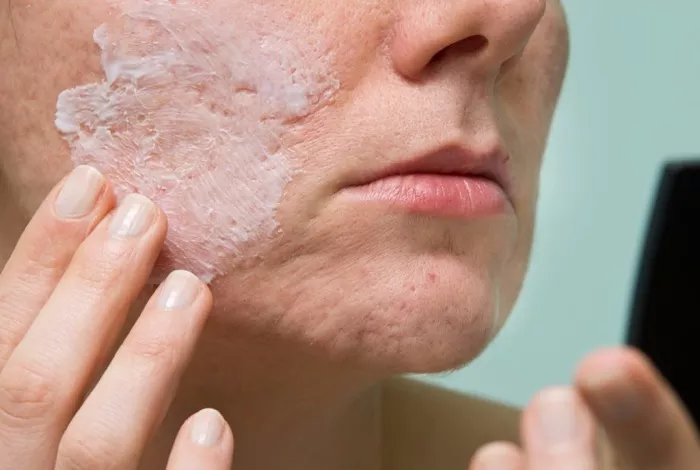Obsessive-Compulsive Disorder (OCD) is a mental health condition that affects millions of people worldwide. It involves intrusive thoughts (obsessions) and repetitive behaviors or rituals (compulsions) performed to alleviate the anxiety caused by these obsessions. While most people associate OCD with common rituals like handwashing or checking locks, a lesser-known form of OCD is staring OCD. This condition involves compulsive staring or the overwhelming urge to look at things or people in certain ways, often without understanding why or how it started.
This article delves into what staring OCD is, its symptoms, causes, impacts on daily life, and available treatment options. By understanding this specific manifestation of OCD, individuals who suffer from it or know someone who does can gain a better understanding of how it affects mental health and explore ways to manage it effectively.
Staring OCD
Staring OCD, like other forms of OCD, involves an obsessive thought pattern coupled with a compulsive action. The obsession in this case is the overwhelming need to look at something or someone. This can vary greatly in intensity and duration. Some individuals with staring OCD feel an intense urge to look at objects or people in certain situations or contexts, and they might not be able to stop themselves, regardless of the circumstances or the discomfort it causes.
People with staring OCD often feel as though their thoughts are controlling their actions, and these compulsions provide temporary relief from the anxiety caused by the obsession. However, the relief is short-lived, and the cycle of obsessive thoughts and compulsive actions continues, often escalating in severity.
Symptoms of Staring OCD
The symptoms of staring OCD can vary from person to person, but some common signs include:
Persistent Urge to Stare: Individuals with staring OCD may feel an uncontrollable urge to stare at certain people, objects, or situations, often for an extended period of time.
Anxiety and Distress: The compulsion to stare is usually triggered by intrusive thoughts that cause significant anxiety. The individual might feel that something bad will happen if they do not stare.
Compulsive Rituals: The act of staring may become a ritualistic behavior that the person performs repeatedly, often in response to anxiety.
Guilt and Shame: Many individuals with staring OCD feel guilty or ashamed of their actions, particularly if their staring is perceived by others as inappropriate or uncomfortable.
Repetitive Thoughts: The individual may experience repetitive and intrusive thoughts related to their staring behavior, making it difficult for them to focus on anything else.
Avoidance: Individuals with staring OCD might avoid certain social situations or environments where they feel compelled to stare, leading to social isolation.
How Does Staring OCD Develop?
The exact cause of staring OCD is still not fully understood, but like other forms of OCD, it is believed to be a combination of genetic, environmental, and neurological factors. Here are some potential causes:
Genetic Factors: Research suggests that OCD, including staring OCD, may run in families. Certain genetic traits may increase the likelihood of developing the disorder.
Neurological Factors: Imbalances in brain chemicals like serotonin are thought to contribute to OCD. These imbalances can disrupt the normal functioning of the brain, leading to obsessive thoughts and compulsive behaviors.
Environmental Stressors: Traumatic events or periods of high stress may trigger or exacerbate OCD symptoms, including staring OCD. For example, someone who experiences an emotionally distressing event might develop obsessive thoughts as a coping mechanism.
Cognitive-Behavioral Factors: People with staring OCD may have a heightened sense of responsibility or an exaggerated fear of causing harm. This cognitive distortion can lead them to feel that they must stare in order to prevent something bad from happening.
Impact of Staring OCD on Daily Life
Staring OCD can significantly impact a person’s daily life, particularly in social and professional settings. The constant compulsion to stare may lead to:
Social Isolation: Individuals with staring OCD may avoid social interactions or public places where their compulsions might be noticed by others. This can result in feelings of loneliness and isolation.
Difficulty with Focus: The intrusive thoughts related to staring can make it difficult for individuals to focus on work, school, or personal relationships. This lack of focus may affect their performance and overall well-being.
Embarrassment and Shame: Staring, particularly when it occurs in social situations, can lead to embarrassment and shame. People with staring OCD might feel self-conscious or worried that others will notice their behavior.
Strained Relationships: The compulsions associated with staring OCD can strain relationships with family, friends, and colleagues. The individual may become preoccupied with their compulsions, leading to frustration or confusion among those around them.
How to Manage Staring OCD
While staring OCD can be challenging, it is possible to manage the condition effectively with the right treatment and support. Some of the most common approaches include:
Cognitive Behavioral Therapy (CBT): CBT is a well-established treatment for OCD, and it can be particularly effective for those with staring OCD. CBT focuses on changing the negative thought patterns that drive compulsive behaviors. Through CBT, individuals can learn to challenge their obsessive thoughts and gradually reduce their compulsive behaviors.
Exposure and Response Prevention (ERP): ERP is a type of CBT that involves gradually exposing the individual to situations that trigger their compulsions. The goal is to help them learn to tolerate the anxiety without engaging in the compulsive behavior (i.e., staring). Over time, this can reduce the intensity of the obsession and compulsion.
Medications: In some cases, medications such as selective serotonin reuptake inhibitors (SSRIs) are prescribed to help manage the symptoms of OCD. These medications work by increasing the levels of serotonin in the brain, which can help reduce obsessive thoughts and compulsive behaviors.
Mindfulness and Relaxation Techniques: Mindfulness practices and relaxation techniques, such as deep breathing or meditation, can help individuals manage the anxiety associated with staring OCD. These techniques can be particularly useful in moments of high stress or when the urge to stare becomes overwhelming.
Support Groups: Joining a support group or seeking therapy with others who have OCD can provide emotional support and reduce feelings of isolation. Hearing from others who share similar experiences can help individuals feel less alone in their struggle with staring OCD.
Conclusion
Staring OCD is a lesser-known but impactful form of obsessive-compulsive disorder that can affect a person’s daily life and well-being. The condition is characterized by the compulsion to stare at certain objects, people, or situations, often accompanied by intrusive thoughts that cause significant anxiety. While the exact cause of staring OCD is not fully understood, it is believed to involve a combination of genetic, neurological, and environmental factors.
Fortunately, staring OCD can be managed with the right treatment, including cognitive behavioral therapy, exposure and response prevention, medication, and mindfulness techniques. With the right support, individuals with staring OCD can learn to manage their compulsions, reduce anxiety, and improve their quality of life. If you or someone you know is struggling with staring OCD, it is important to seek help from a mental health professional who can provide personalized treatment options.
By understanding what staring OCD is and how it can be treated, individuals can take the first step toward managing their symptoms and leading a fulfilling, balanced life.
Related Topics

































